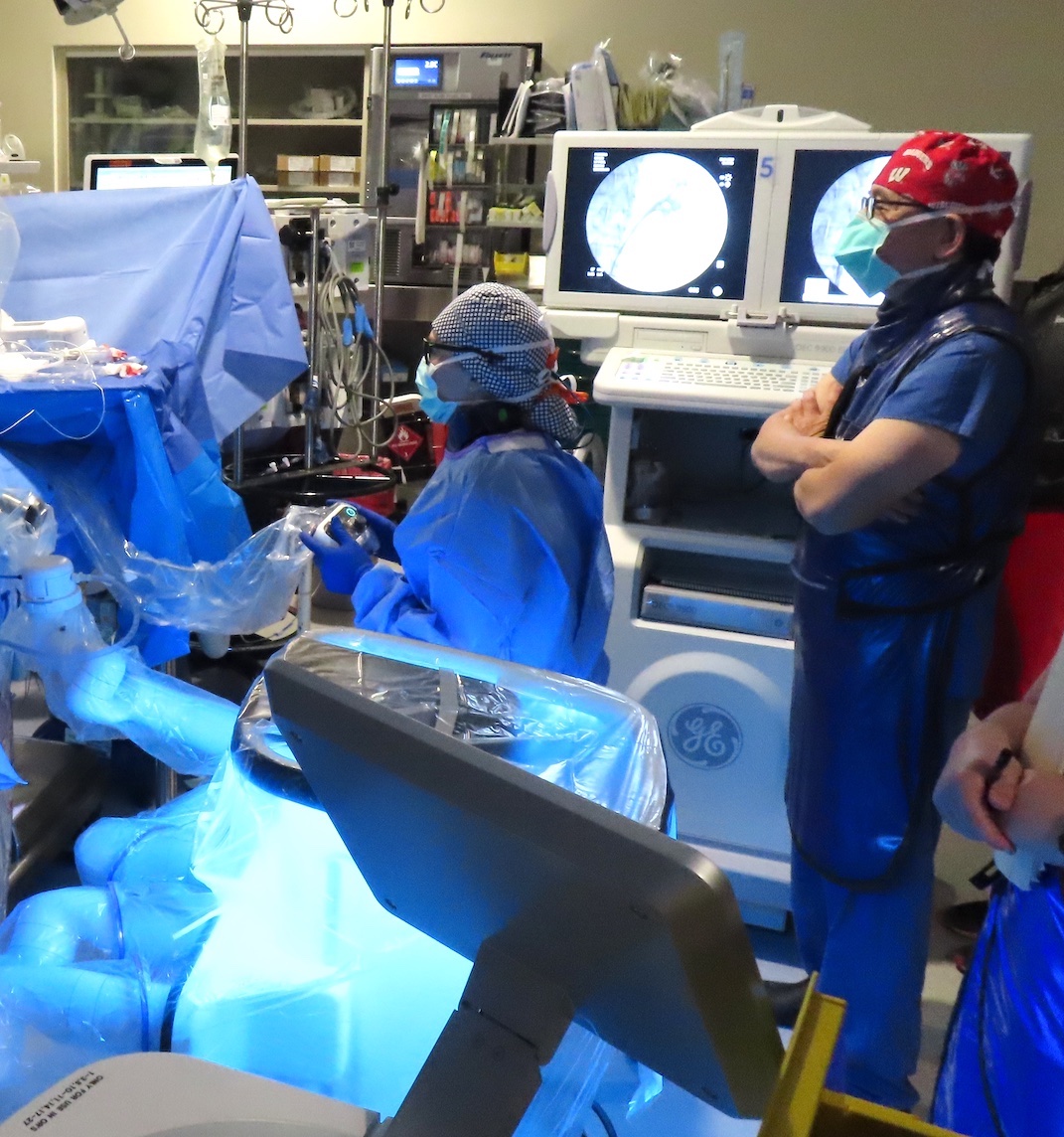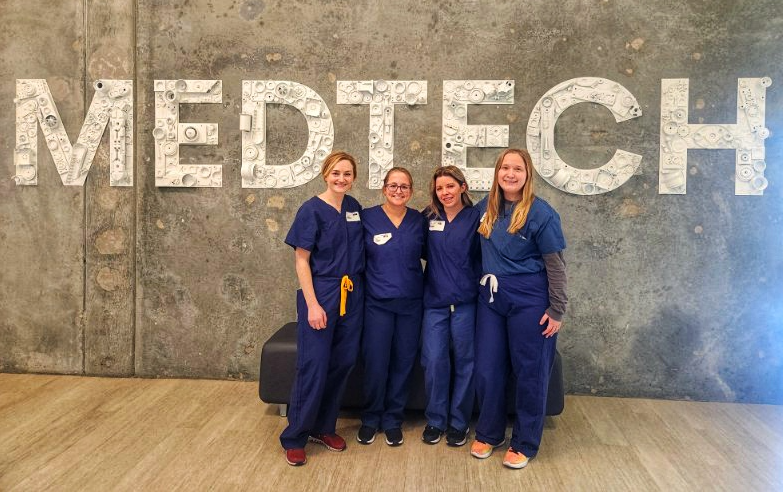
The Department of Urology at the University of Wisconsin School of Medicine and Public Health is leading a research study to investigate a new surgical robot for the treatment of kidney stones. Led by Margaret Knoedler, MD, the study team recently completed the first case in Wisconsin and only the 14th case worldwide.
The newly FDA-approved MONARCH™ platform provides a minimally invasive robotic approach to percutaneous nephrolithotomy (PCNL). This new approach allows the procedure to be independently completed by a single qualified urologist by using electromagnetic guidance to gain antegrade access while the patient is in a modified supine position. The ability to gain access through the supine position allows greater ease for the patient while under anesthesia – and for the surgical staff. Using the MONARCH™ can make the PCNL procedure far more efficient for stone removal, as the physician can sit while doing the procedure, navigating the MONARCH™ platform using a joystick controller. With a few clicks, the physician can visualize and operate multiple functions, such as suction, irrigation, and lasing.
 To prepare for the study, Dr. Knoedler, the primary investigator; Abigail Wiedmer, research coordinator; Lacy Krahenbuhl, surgical nurse; and Emily Hesterly, surgical technician, traveled to Redwood City, California, to undergo study and simulation training. While there, they learned about the MONARCH™ platform in-depth using different training modalities – including simulated kidney devices, a swine model, and virtual reality.
To prepare for the study, Dr. Knoedler, the primary investigator; Abigail Wiedmer, research coordinator; Lacy Krahenbuhl, surgical nurse; and Emily Hesterly, surgical technician, traveled to Redwood City, California, to undergo study and simulation training. While there, they learned about the MONARCH™ platform in-depth using different training modalities – including simulated kidney devices, a swine model, and virtual reality.
UW-Madison will complete a total of 20 cases for this study. Overall, the UW team aims to analyze the capabilities of the MONARCH™ platform, including any learning curves when using this cutting-edge approach, while providing exceptional patient care.